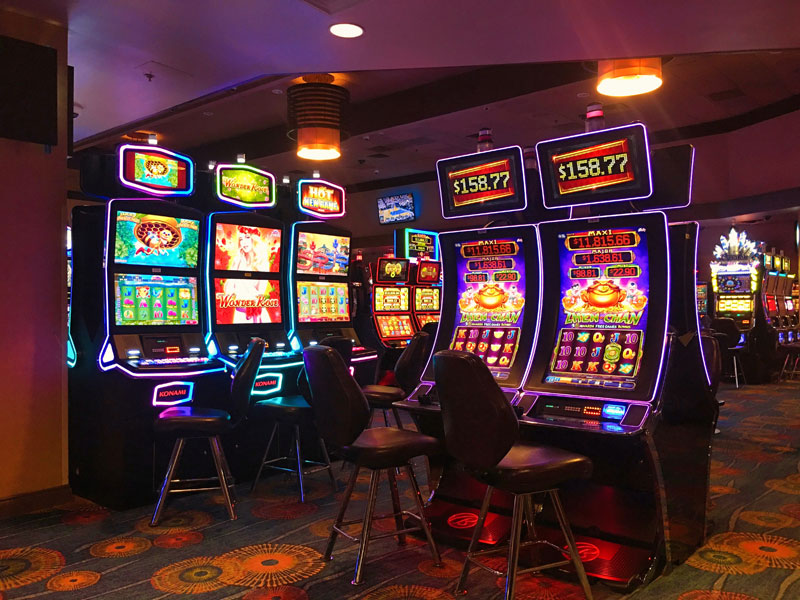My Perspective on the Albanian Gambling Landscape
As someone who’s been immersed in the online betting and casino industry for over a decade, I’ve worked with regulatory bodies, casino operators, and thousands of players from across Europe. Albania has always stood out as one of the most unpredictable and complex environments. The country has a rich gambling culture—but also a fraught political relationship with it.
When I first started supporting Albanian markets as a regional betting representative in 2016, lojra fati were already a heated topic in media and parliament. Players loved them. The government—at least publicly—hated them. And the legal status of online gambling has been anything but simple ever since.
Gambling in Albania Before 2019: A Wild West
Prior to 2019, Albania had one of the most loosely regulated gambling markets in Europe. Online operators weren’t explicitly licensed, but they weren’t banned either. Several well-known international betting platforms openly accepted Albanian customers, provided services in the Albanian language, and even advertised on social media or local TV.
On the ground, sports betting shops and slot machine venues were everywhere—often located next to schools, mosques, or residential buildings. Electronic casinos were thriving, and many families relied on them for income, either through employment or informal rental agreements.
In fact, I remember attending a local gaming conference in Tirana in 2017 where the energy was electric. Everyone—from platform developers to affiliate marketers—saw Albania as a sleeping giant in the Balkans gambling market. But beneath the surface, trouble was brewing.
The Government Strikes: The 2018 Ban on Gambling
In October 2018, the Albanian government passed Law No. 75/2018, a sweeping piece of legislation aimed at eliminating gambling from public life. The law banned:
- All online gambling platforms, regardless of origin or status
- Sports betting shops throughout the country
- Slot machine venues and electronic casinos outside designated tourist zones
The law came into force on January 1, 2019, and triggered a massive wave of closures, protests, and social debate. Practically overnight, thousands of small business owners lost their livelihoods. I personally saw contracts between local operators and European platforms terminated within weeks.
The justification from the government was rooted in concerns over addiction, poverty, and links between gambling and organized crime. Prime Minister Edi Rama described the move as a “moral revolution.” But the real picture was more complicated.
What Happened After the Ban?
Officially, gambling was wiped off the streets and screens. But in practice, many Albanians continued to bet—and they still do today.
Several phenomena unfolded in the aftermath of the ban:
1. Black Market Explosion
As expected, the ban pushed players into unregulated and dangerous environments. Offshore platforms that previously operated with semi-transparency simply adapted: they moved servers, changed domain names, and continued targeting Albanian players.
In fact, the number of VPN downloads in Albania spiked dramatically in early 2019, according to third-party analytics. As a betting rep, I saw Albanian IP addresses reappear within weeks through proxies and mirrored domains. The demand for lojra fati didn’t disappear—it just went underground.
2. Rise of Cryptocurrency Betting
Many Albanian users began exploring crypto-based platforms that allow anonymous play, fast transactions, and borderless access. These platforms often operate in legal grey zones and are incredibly difficult for authorities to track or shut down.
As an insider, I can confirm that Albania has become a hotspot for crypto gambling innovation—albeit quietly. While it’s not part of the legal framework, the trend continues to grow in 2025.
3. Tourist-Zone Loopholes
Interestingly, the law permitted land-based casinos to operate in designated tourist areas, such as certain zones in Tirana and Durrës. These luxury establishments cater mostly to wealthy locals, expatriates, and visitors—but they highlight the inconsistency in enforcement.
While regular citizens can’t place a €2 sports bet online, a foreign tourist can walk into a velvet-rope casino and bet thousands. It’s not lost on the public.
Is Online Gambling Still Illegal in Albania in 2025?
The short answer: Yes, technically.
As of 2025, there have been no legal amendments to restore general access to online gambling. The 2018 law still holds, and the Ministry of Finance and Economy maintains oversight over any gambling-related activities.
However, enforcement is selective, inconsistent, and deeply political. While hosting or promoting online gambling from within Albania can result in fines or criminal charges, players themselves are rarely prosecuted. In fact, according to legal analysis from the Albanian Center for Legal Studies (ACLS), the law targets operators and advertisers more than end-users.
How the Law Affects Players, Operators, and Affiliates
Players
From my interactions with thousands of Albanian users, here’s what I can tell you: the average player is well aware that online gambling is “illegal,” but that doesn’t stop them. They’ve become highly resourceful, using VPNs, alternative payment methods, and forums to find and share links to functioning platforms.
Most players are under the impression that their personal risk is minimal—and they’re right, in most cases. The government isn’t knocking on doors to confiscate laptops.
Operators
Foreign operators walk a fine line. Some have geo-blocked Albanian traffic entirely. Others still accept players covertly, often removing support for the Albanian language but keeping customer service available to them.
The biggest risk is reputational and financial. Any operator caught actively marketing in Albania could face EU regulatory pressure, especially with growing data-sharing among financial watchdogs.
Affiliates and Local Promoters
Affiliates—especially Albanian influencers and Telegram channels—have adapted. Many now use coded language, private groups, or “review-style” content to promote platforms without direct advertising. It’s risky, but profitable.
The Political Dimension of Gambling in Albania
You cannot understand gambling laws in Albania without understanding the political theater behind them. The 2018 ban was as much a moral statement as a tactical maneuver. Critics argue it was designed to weaken informal economies not aligned with the ruling party, while simultaneously granting more control over future licensing.
In 2023, there were rumors of a “selective reopening” process—one that would allow a handful of international operators to return under tightly controlled licenses. As of 2025, this process is still delayed, likely due to concerns about public backlash and electoral optics.
The Future of Lojra Fati in Albania
From my professional standpoint, here’s what I predict:
1. Licensing May Return by 2026–2027
There’s increasing economic pressure to regulate and tax the massive underground gambling economy. Albania loses millions annually in uncollected taxes from unlicensed play. Eventually, the government will need to legalize and license again—probably under stricter AML (Anti-Money Laundering) conditions and with centralized data sharing.
2. More Sophisticated Enforcement
Expect more IP blocking, payment gateway restrictions, and inter-agency cooperation. Already, the Albanian authorities have worked with international tech firms to blacklist domains. But it’s a cat-and-mouse game—and one where the house rarely wins.
3. Technological Integration
With the rise of blockchain, AI fraud detection, and biometric KYC tools, Albania has the technical capacity to launch a highly secure national platform. The question is: who would be allowed to operate it? Insiders suggest a possible state-run or oligarch-backed consortium.
Final Thoughts: A Betting Representative’s Candid Advice
If you’re an operator considering entry into the Albanian market—don’t, at least not officially. It’s too unstable, and the penalties too high.
If you’re a player, be aware that while enforcement is light, it’s not nonexistent. Stick to platforms that take security seriously, avoid flashy promotions on public channels, and use private payment systems.
If you’re a policymaker reading this, know this: bans don’t work. Albanians will gamble whether you like it or not. The smart approach is to regulate transparently, license competitively, and educate users.
As someone who believes in ethical, fair, and transparent gambling, I would love to see Albania return to the table—not as a Wild West or a police state, but as a mature and modern regulator in the European gaming ecosystem.
Until then, the battle between law and lojra fati will continue—in courtrooms, in code, and in the cloud.


